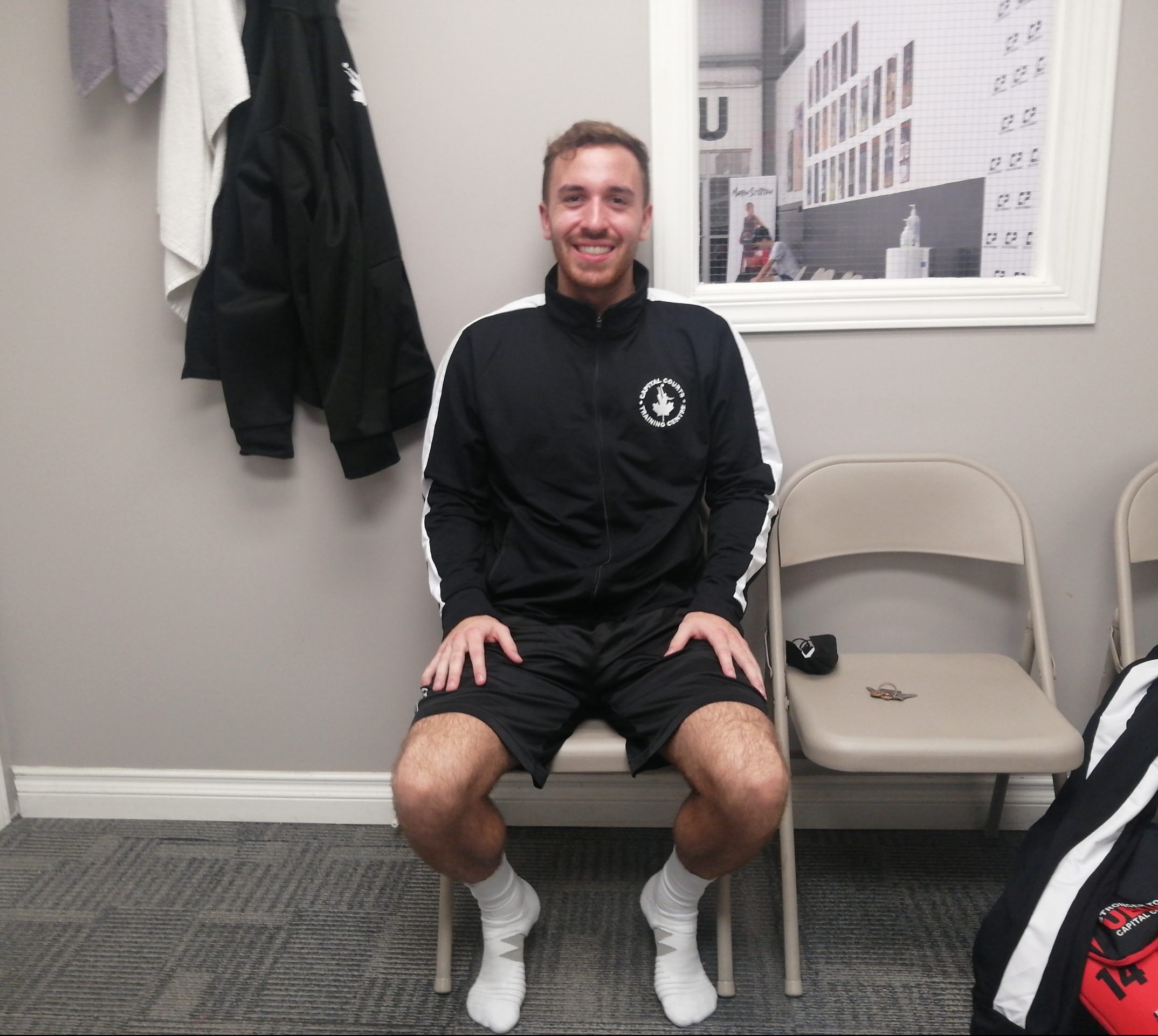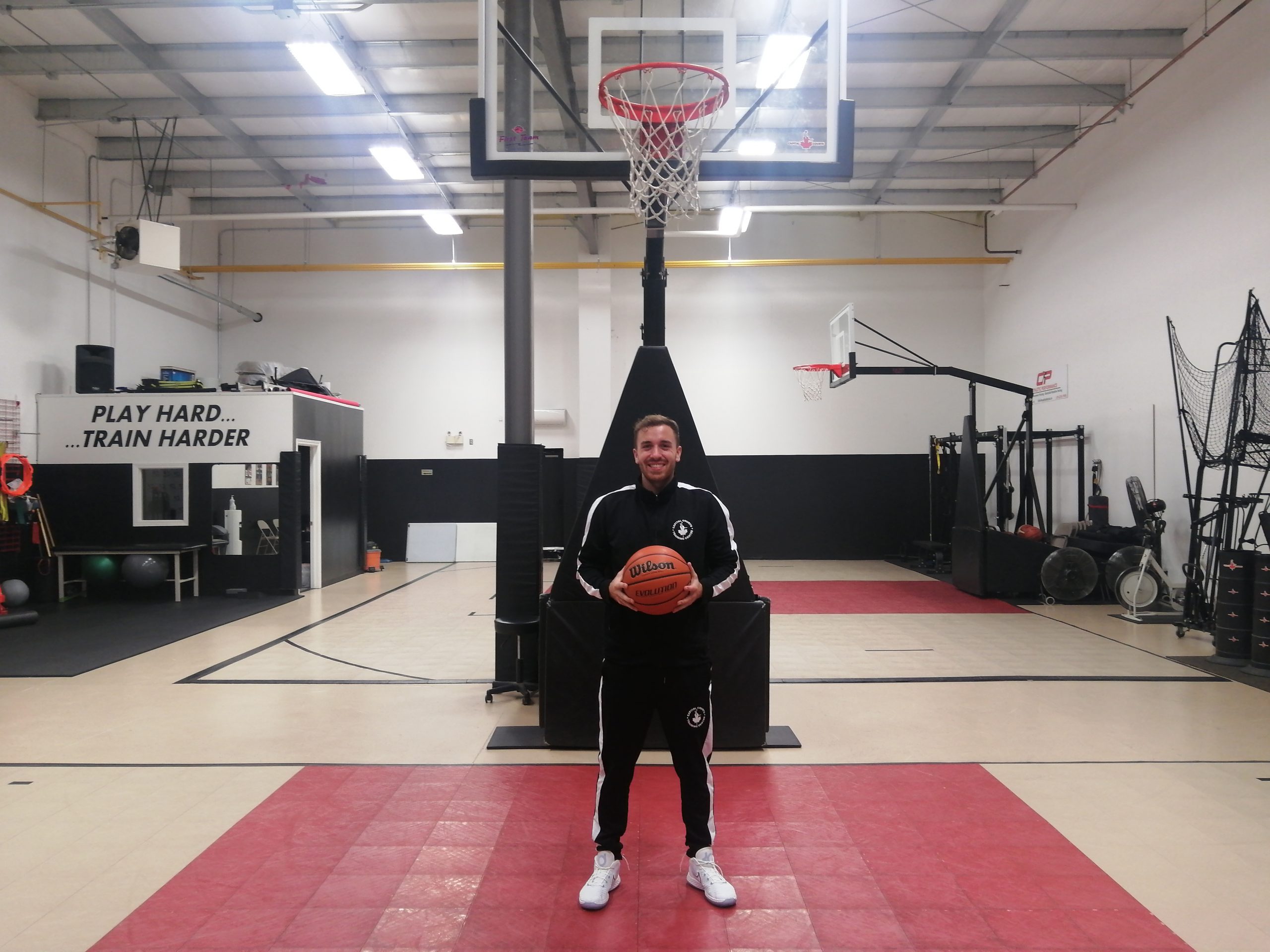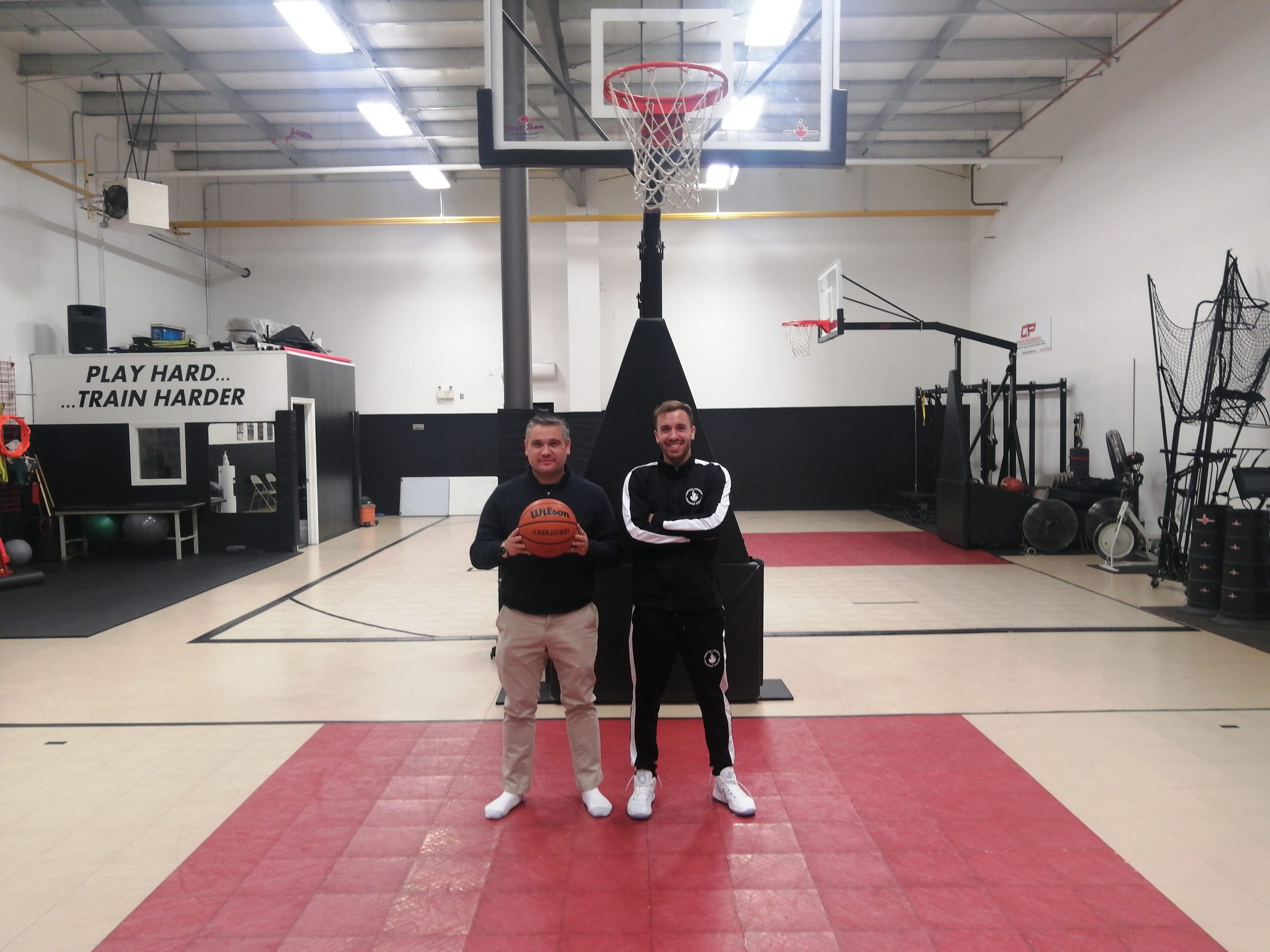On a Friday night, just as many were putting the work week behind them and easing into a more relaxed pace for the weekend, I walked into the Capital Courts gym to meet Coach William Davenport — the 23 year old man who was still at work and fully engrossed in his interactions with a handful of aspiring young athletes. The intentional thud and rhythm of basketballs on the court and the sound of the brisk, angular movements of the players bounced off the walls and reverberated through the facility, as Coach Davenport led me to the office for our interview. He exuded an energy and passion that suggested to me that he didn’t see his Friday nights spent coaching as work, but much more so as a vocation, and that he perceived basketball as more than a sport, but rather as an opportunity for personal healing. “When you love what you do, it doesn’t feel like work. Yes, I’ve had moments when self-doubt would creep in. But if you love what you do and you trust the process and keep going, you’ll get to where you want to be,” he explained.

Coach William Davenport in the Capital Courts office. Photo: Ottawa Reflections
At age 13, Coach Davenport lost his father to suicide. “I felt confused and was trying to find my identity in this world. I found my home in the YMCA, getting involved in after-school programmes and in volunteering. I had the opportunity to do youth outreach on Friday nights — getting young people off the street and offering them a positive environment. I felt like I could resonate with these kids, because I knew how much I would have needed these programs when I was growing up. I got especially drawn to the life lessons you learn through sport, and specifically through basketball,” he explained. Over the years, Coach Davenport has worked with a wide variety of age ranges — from pre-teens all the way to men in their thirties. While at the YMCA on Argyle, Coach Davenport’s weekends revolved around basketball and youth outreach. Friday nights were dedicated to youth night and Saturday mornings were focused on training teenagers. Over the years, he began to identify more as a community leader in Ottawa in the area of basketball and was able to address the sense of alienation that can exist and grow in large urban environments. “Whether it’s sports or arts, people having opportunities to come together is one of the most important things,” he shared.
But what exactly is it about sports that can have a therapeutic effect for those who are struggling or processing trauma?
“Physical activity keeps the brain occupied in a constructive way. It’s an escape, at least that’s what it was for me. Basketball gave me opportunities to smile when things weren’t going well for myself. I would be on the courts after school all the way until closing at 11 p.m. When I’m on the courts, I’m happy. I know that many kids develop a sense of identity and camaraderie with others. Those of us who grew up with this sport ended up building relationships through basketball.,” he said.
“I knew that just playing wasn’t it for me. Instead, I wanted to be more involved in the training and mentorship aspect of basketball. That’s how I began developing my presence and a brand called Willpower, based on both my name and my life story.”
Basketball’s profile in Ottawa has also been increasing. With the success of the Raptors, basketball has a greater place in the public consciousness than it had before.

Coach Davenport on the court. Photo: Ottawa Reflections
Basketball has roots in the Ottawa region, having been invented in 1891 by a native of Almonte, James Naismith — a doctor, a physical education teacher at the YMCA International Training School in Springfield, Massachusetts and later a Presbyterian minister and army chaplain, including at the Kansas Army National Guard. Reverend Naismith saw basketball pointing to something beyond itself. It had the potential to help young people grow and mature into healthy, well-rounded adults. Basketball’s humble roots trace back to the Reverend’s peach baskets, which were used to catch the balls. Given the game’s connection to this region, to what degree is basketball actually embraced as part of our heritage and our present in Ottawa? Coach Davenport didn’t hesitate with his response.
“More needs to be done. Capital Courts is the only indoor facility that I know of specific to basketball training, rather than simply an open gym. There is still the YMCA, although during the on-going pandemic, it’s not as accessible. I find that we need to do more in the winter especially to offer good, accessible, 24/7 facilities, much like Toronto does. In Ottawa, we have 24/7 weight rooms, but nothing for basketball. Something I also noticed in Ottawa is that many of the outdoor basketball courts don’t have water fountains, washrooms nearby and many don’t even have basic lighting. Frequently, players get kicked out after 9 p.m. Yet in the case of tennis courts, I see lights and basic facilities,” Coach Davenport noted, suggesting a type of double standard.
It takes time for a coach to build trust with a new trainee, Coach Davenport explained. Speaking about his current employer, Capital Courts, he added: “You leave here with a sense of pride; you leave with something that you were missing before you walked through these doors. You get better within fifteen minutes of coming into this gym. We walk you through everything and we make it fun — regardless of whether you’re an adult or a kid. We’ll always adapt to how you could best reach your potential and we do get a sense of that pretty quickly.”

Coach Davenport with the editor of Ottawa Reflections.
Coach Davenport credits his studies at Algonquin College with teaching him training techniques and how to be personable during instruction. Thushanth Jeya is one of the young people who Coach Davenport trained over the years. Speaking to us, he noted:
“Basketball is my sanctuary; it makes me forget all my problems and stresses. It’s just me, the ball, and the basket. Just taking shots and trying to get better…It’s like therapy. I leave the court better mentally then I came. Basketball really helps motivate me to do well and keeps me on the right track.” When reflecting on his coach specifically and how he tries to contribute to his growth, Thushanth added:
“My coach helped my by holding me to high standards and making me believe in myself. He makes sure my reps are as perfect as possible and that everything I do, I do with a clear purpose. He made me believe in myself; I used to always doubt myself, but because of Will I actually believe I can do things by putting in the work.”
But how does Coach Davenport keep himself motivated?
“My values, seeing the mistake that my father made in committing suicide, and remembering my own experience processing that, knowing all the people and all the experiences that I would have left behind if I gave up keep me motivated to keep going. It’s dark, but knowing all that I would have missed if I made the same mistake as my father keeps me motivated. I have people who look up to me, some of whom are twice my age, especially knowing the curveballs I’ve been thrown in life. And I know the difference I made in the lives of the kids at the YMCA. It’s this sense of being part of a community and making a difference in it that keeps me going,” he explained.
Coach Davenport speaks of his father’s suicide and the impact it had openly — and this interview isn’t the first time that he’s shared his story with others.
“Opening up and being vulnerable in front of others is something I’m sure has touched people and has had a great impact. When I first shared my story online, I had a real anxiety about it. Would people even connect to this, I asked myself. The circle of people around me at the time were so supportive. People saw the video I posted and many cried and were touched by it. Ultimately, it took me looking me beyond myself and being willing to be that vulnerable in front of people. But sharing personal struggles, especially those around mental health, is more important today than ever before, especially in light of the on-going pandemic,” Coach Davenport noted.
“Basketball is one of the main ways I keep myself balanced. For me it’s basketball around the clock,” he added, noting as well that going for lots of walks, listening to podcasts and meditation all help too. When I asked him to estimate the percent of his waking hours dedicated in some way to basketball, he gave me the figure of 85 percent.
“I consider myself so fortunate, because I wake up each day and love my job. Although I was 13 when my dad died, one of the memories I have of him is how he would help anyone. I recall that I was in a car with my friends and my dad was driving us. This woman was running after the bus and she dropped her phone. My dad did a u-turn, picked up the phone, jumps in front of the bus, stops it and gives the woman her phone. I’ll always remember this and ever since then, my philosophy has been to do things for others that you would want to be done for you,” Coach Davenport shared.
In many ways, the way Coach Davenport lives his life and his passion for basketball is a tribute to his father — it helps keep his memory alive. But amidst the passion and ambition, he told me that he’s aware of the importance of being patient with himself, taking a step back and not losing perspective are all key to good mental health. “The anniversary of my dad passing away is difficult for me. I know that’s when I should take a step back and be thankful for the fact that I can pursue my passion,” Coach Davenport explained.
“People sense that I love what I do, and I think that energy can be contagious,” he said.
